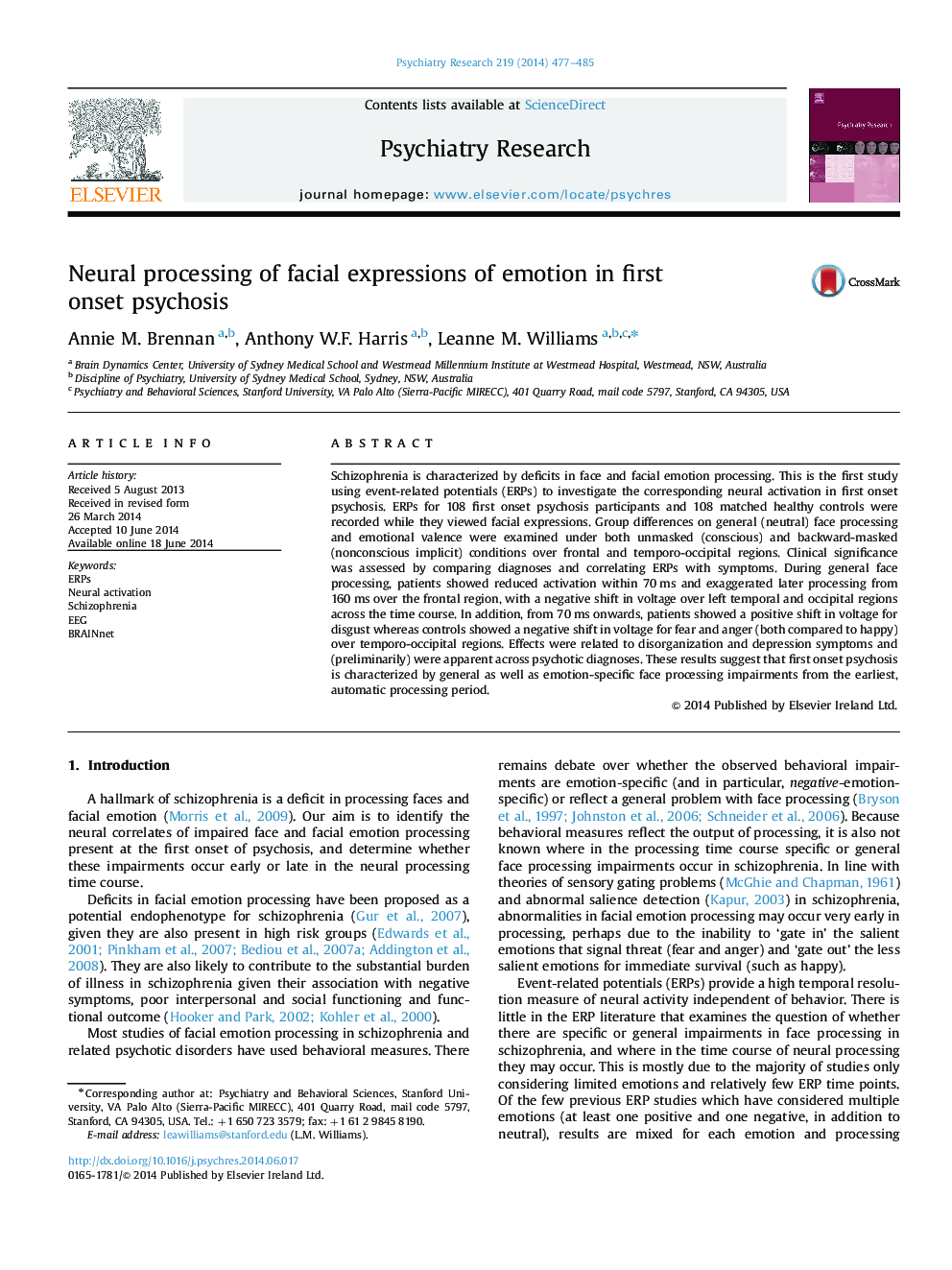| Article ID | Journal | Published Year | Pages | File Type |
|---|---|---|---|---|
| 332137 | Psychiatry Research | 2014 | 9 Pages |
Schizophrenia is characterized by deficits in face and facial emotion processing. This is the first study using event-related potentials (ERPs) to investigate the corresponding neural activation in first onset psychosis. ERPs for 108 first onset psychosis participants and 108 matched healthy controls were recorded while they viewed facial expressions. Group differences on general (neutral) face processing and emotional valence were examined under both unmasked (conscious) and backward-masked (nonconscious implicit) conditions over frontal and temporo-occipital regions. Clinical significance was assessed by comparing diagnoses and correlating ERPs with symptoms. During general face processing, patients showed reduced activation within 70 ms and exaggerated later processing from 160 ms over the frontal region, with a negative shift in voltage over left temporal and occipital regions across the time course. In addition, from 70 ms onwards, patients showed a positive shift in voltage for disgust whereas controls showed a negative shift in voltage for fear and anger (both compared to happy) over temporo-occipital regions. Effects were related to disorganization and depression symptoms and (preliminarily) were apparent across psychotic diagnoses. These results suggest that first onset psychosis is characterized by general as well as emotion-specific face processing impairments from the earliest, automatic processing period.
